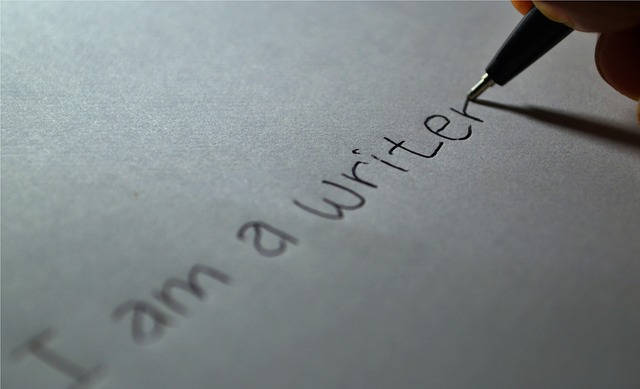It is November 30. And that means …
Congratulations, NaNoWriMo participants!
You made it!
Before I go any further, let me set the record straight for anyone not familiar with the term NaNoWriMo.
Here is what it is not.
It is not the ghost of Robin Williams invoking Mork from Ork language.
It is not baby talk for I Don’t Want To.
It is not a term of endearment for a grandmother.
NaNoWriMo stands for National Novel Writing Month, in which thousands of determined writers attempt to bang out 50,000 words in 30 days during the month of November.
To all my writer friends partaking in the challenge this year, I hope you found it to be rewarding. It is no easy task to write that much in one month.
I know from whence I speak since I was a NaNoWriMo participant last year and hit my 50,000 words. It took a lot of time … and a lot of discipline.
But in the process, I realized that you don’t have to hit 50,000 words to be successful. Even 1,000 should count as a success.
If you wrote more in November than you have in any other month, give yourself a pat on the back. Congratulations!
Last year, the day after I completed NaNoWriMo, I shared 10 NaNoWriMo Tips for Writers based on my experience. But as the days unfolded into weeks, I felt a little lost now that the structure of the writing challenge had ended and I was once again on my own.
With NaNoWriMo now over, what’s the next step? When I was in your place last year, I asked for advice. Of course, you will decide what works best for you. But here are some tips that were shared with me.
And whether or not you participated in NaNoWriMo, these are good tips for all writers.
NaNoWriMo is over. Walk away.
Put your manuscript to bed for a bit of hibernation. You’ve written a lot and you’ve been consumed for a month. You can’t be objective about it right now. Walk away and let it marinate for a couple of weeks or even longer. In the meantime …
Work on a different project.
Don’t let your writing chops languish while your manuscript does. Keep the energy going with something else.
Start to craft an elevator speech.
This will be important down the road as you pitch your book to agents and publishers. The value of doing it now is it helps you evaluate the components of your story. Is the plot strong enough? Are the characters multi-faceted? Does their motivation make sense?
Work on a second draft but understand this won’t be your last draft.
The cognoscenti advise NaNoWriMo-ers to write, not edit, and hopefully this is what you have done. The idea is to let the 50,000 words flow without worrying about how good they are. I was fairly appalled at how bad my first draft was and I think many NaNoWriMo’ers feel the same. That’s OK. Your second draft will be better, but not as good as the third.
Broaden your characters.
You may have done character development before you even started to write. That is what is recommended. I did not do that. My characters threw some curve balls my way and that helped me better define their personalities. I think even if you have planned out the wazoo, your characters will still evolve over the course of writing.
Think as a reader.
As you go through the editing process, try to think as a reader, not a writer. Do your chapters end with a cliffhanger or at least an incentive for you to continue reading? Is there enough action, pathos, drama or mystery? Is there extraneous jibber jabber that can go away?
Keep writing.
Don’t stop now! You won the race but the marathon is not over yet. The speed at which you progress is up to you, but don’t give up. A year later, my manuscript is now at 70,000 words. I am still on the second draft.
Talk about your work.
I haven’t shared my manuscript with anyone except for an editor yet, but I do talk about it if people ask. I can gauge the general interest in my story with their response. It also keeps me accountable.
So writers, carry on. You should be proud of your effort and commitment. Good luck with the next phase of your writing!







